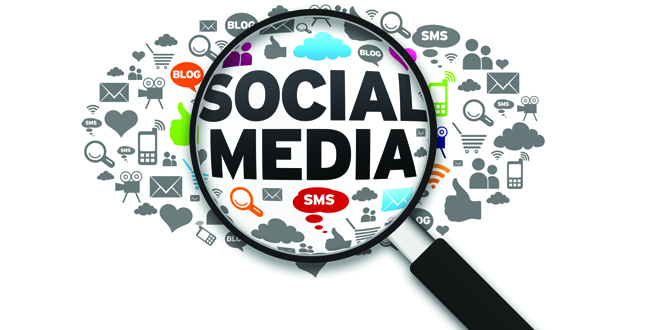
The perilous trap of social media
I had just stepped out of the clinic on a chilly day, hurrying out while using my phone, when my attending physician said, “Always be focused and remain sincere to your life; there are very few people out there who deserve loyalty.”
What he said seemed like a taunt, but in fact, he was advising me about something he had learnt from experience. The question then arises as to why he decided to impart this knowledge at that moment. The truth is I was checking the updates on my Facebook account. Interesting? Yes, I accept my mistake and wish to share with you this golden piece of advice, and thus present here some facts regarding this matter.
I decided to do some research on this subject and came across multiple studies that deal with the growing dilemma of social media among the youth of our society. I then summarized my work and presented it to you as, ‘Online devastates Offline’. Now, what does that mean? Before getting into the details of this, I’d like to shed some light on the concept of ‘SNSs,’ or ‘social networking sites.’
According to several surveys and research studies, emotions can spread through social networking sites (SNSs). It has caused significant changes to the way people contact and communicate with each other. Over the past decade, Facebook has been the leading social networking website and continues to be the dominant one with an estimate of a billion active users.
This number is predicted to double in the coming years, especially in developing and growing countries. Facebook provides users with a wide platform for communication, sharing ideas and thoughts, while increasing education and prospects of business success as well. It has brought several advantages in these respects. For social networks that work on such a large scale, even a small upshot can have major repercussions.
In the current global wave of stress due to various social crises, I would like to bring a message of hope to the youth that is out there. I look around me and every day I witness my classmates and my seniors engrossed in the struggle to ace different foreign exams that would secure them a job abroad and promise them a stable life.
Nearly every other person has this vision of giving up anything and everything just to pass international exams and settle elsewhere. This will automatically increase our misery if we are unable to achieve that goal and are not as (“apparently”) successful as our fellow classmates, who openly declare their fortunate blessings on social media.
In addition, some researchers have associated prolonged online networking with numerous psychiatric disorders and low self-esteem. There were very significant trials that measured the association of depression and Facebook use. They concluded that the use of social networking sites up to a certain extent may be protective against depressive symptomatology, which appears to vary by sex and personality (i.e. high for females and low for males).
I repeat, up to a certain limit- it may be protective. But increasing the amount of usage beyond that limit causes a deteriorating effect on our mental as well as physical health. Consequently, recently, it has become an area of concern. Therefore, in my humble opinion, more needs to be done to counter the prevalence of these negative effects. Preventative measures also need to be taken.
Coming back to the term, “Online devastates Offline”- when we are engaged in social networking for a long time, the prolonged use of social media may disturb our offline behavior. By observing Facebook related depressive traits, we tried to analyze human behaviors in social relationships that could predict depressive moods.
Moreover, Facebooking doesn’t correlate with mental health alone, but also with the co-morbidities associated with a sedentary lifestyle i.e. obesity, eating disorders, etc. It will isolate the victim from rest of the world, from high goals and from normal individuals.
I personally believe that work needs to be done which addresses the prevalence of traits in individuals that are often overlooked and put them at a higher risk of addiction. It has been observed that most sought after motives for Facebook usage are relationship perpetuation, passing time, H entertainment and companionship.
Gratifications via Facebook use are linked to a gradual addiction process. Facebook provides resources for fulfilling the basic human need for social connection which, in the long run, is detrimental.
So it’s very important that the usage of social media is discussed with reference to future healthcare delivery by peers; especially Facebook usage. It is a relatively new phenomenon with many unanswered questions regarding its significant impact on mental as well as physical health.
Dealing with this concern will help us in providing awareness in order to achieve the agenda of a better health system. I hope the message attached to this blog will be pondered over for the development of an optimistic society and will outline the issues that pose a serious health concern.
About the author: Hafiz Abdul Wase is a final year student of Karachi Medical and Dental College which is affiliated with University of Karachi, Pakistan. He has done electives and research in Aga Khan Hospital Karachi, Pakistan and is keenly interested in research.
Article source AFP

